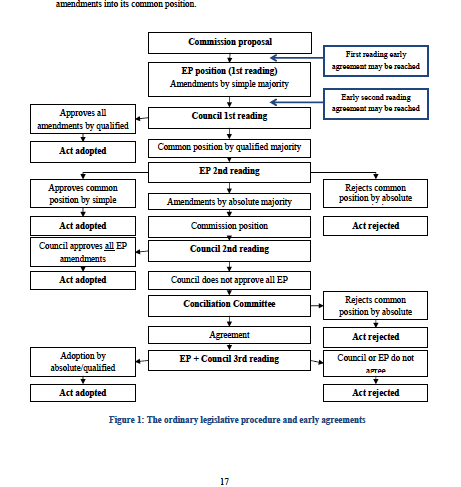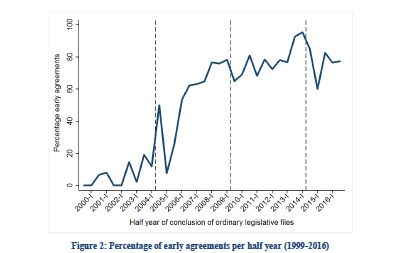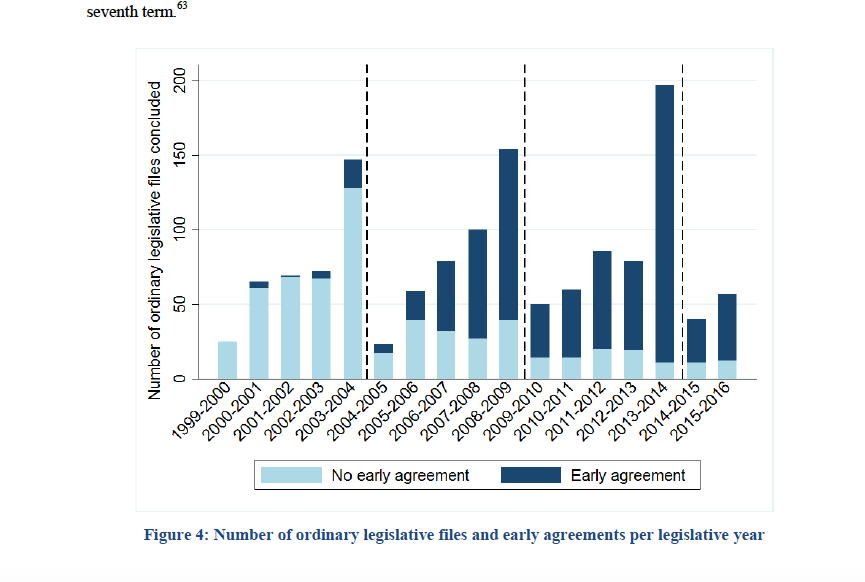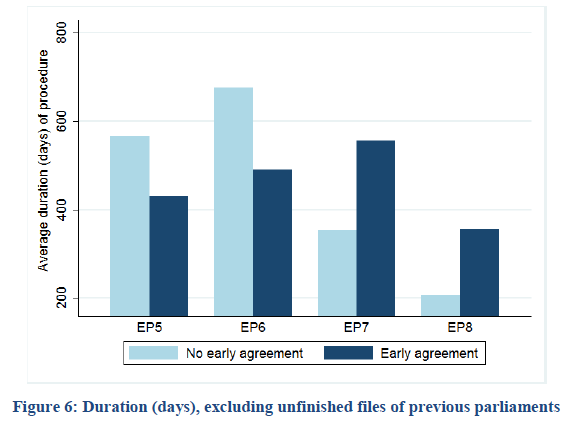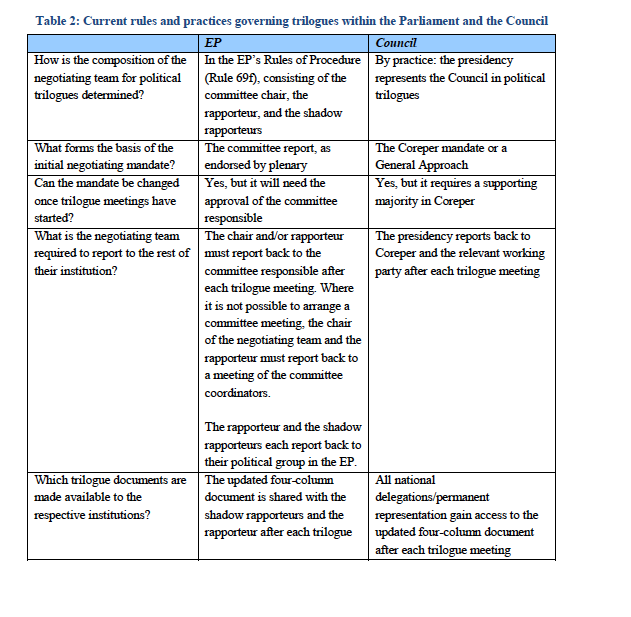Today, EU legislation – ordinary – is adopted earlier and faster.
Today, it seems that 100% of ordinary legislation is completed at first reading agreement.
Ordinary legislation is now agreed to over trilogues.
Gone are the days of waiting for the plenary to vote in 2nd reading to get your issue taken up. Too many people are not aware that the old ways just don’t work.
A lot of people have no idea what the informal and secluded meetings on ordinary legislative dossiers attended by representatives of the Parliament, the Council and the Commission. If you don’t, take some time to read this useful report by the the EESC ‘Investigation of informal trilogue negotiations since the Lisbon Treaty’ June 2017 (link)
Some people think they are secretive. The name must give the odour of smoke-filled rooms.
The European Court of Justice (link) and European Ombudsman (link) have both called for more open trilogues.
Today, there is nothing to stop the process being opened up today, except inertia and political self-interest. Yet, even if they are opened up, it is only going to show a small part of the modern legislative system. The bulk of legislative negotiations are done by email and phone conversation. It’s been the case since the mid-1990s. The meetings are important as they formalize pre-agreed compromises and agreements, and help iron out niggling issues.
How Trilogues enter into the process
Agreements get done earlier year by year
Far less legislation under the Juncker Commission
Agreements reached quicker
Parliament and Council – Core Rules
EESC Recommendations
The EESC report is good. It has a set of recommendations. I find them subdued
- Make Council’s Mandate Public
2. Create a Joint database of on legislative files:
- Publish meeting dates of trilogues
- Publish 4 column document after legislation adopted
- Database providing up to date information on the progress of a file
A Simple Solution
The reality is that any Member State or MEP could open up the system today.
I think that would be a good thing. Laws should not be made in secret. Sunshine has a positive disinfectant quality. Any MEP or Member State could:
- publish the 4 column document when they get it
- publish the minutes of the meetings
- publish the agenda of the meetings
- name the participants of the meetings
To be fair, I don’t think there is anything to stop the Commission doing this tomorrow.
And, even if they did, it leaves most of the serious heavy lifting of political negotiations untouched.
In practice, legislative negotiations occur in practice over the phone, bi-lateral meetings over coffee and email. That’s been the case since 1997. The formal meetings all too often just ratify pre-agreed agreements. I spent a year being followed by Channel 4 in 1997. Even then, they noticed that all the real agreements were done outside any formal meeting.
In most democratic system, the public gets to the follow what their legislator is doing and why. In some countries, you have TV channels devoted to it.
Why the public can’t see all the paperwork and watch things live is beyond me.
It’s like turning off the cameras when the European Parliament vote for fear of the voters.
What this means for Lobbyists
The trend for early political agreements and trilogues means:
- You need to know who has the power of the pen
- Which officials and GRoup advisers are doing the work
- You need to get in very early – if you don’t it is a lost cause. By early, you need to get in and speak to the people holding the pen in the European Parliament and Member States within a week or so of the Commission’s proposal going out the door.
